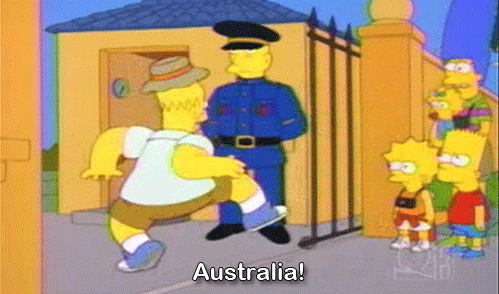Although Diaspora was once typically a term only used to describe the mass dispersion of the Jewish in 722, in modern times the term can be used by pseudo intellectuals as a fancy way of describing the dispersion of any people from a central homeland/area (Kuttainen,2015. This vaugery of definition allows for use in a much wider degree of use within the context of dispersion, with different peoples and tribes being able to be considered in diaspora. Diaspora prevents the telling of story and can lead to a lack of community identity, which is obviously not a good thing. However, the term itself could be questioned with the invention of social media being able to somewhat relieve those in diaspora. Because the internet ( and by extension social media) is not usually affected by distance (if everything is working correctly at a reasonable capacity). Applications like Skype and Facebook allow instantaneous video communication with other people, making physical location much less important to connecting with people of ones family or tribe. This allows for narratives and aspects of community identity to be continued in their non physical aspects, meaning it is no longer possible to completely destroy a culture by dispersing them (Ma Mung, 2005). Obviously these technological advances don't completely remedy all aspects of diaspora, however, there is definitely some great benefit for those in diaspora. These benefits extend beyond those in diaspora too, with Facebook pages based on pop culture being able to create communities beyond that of their local area or even country.
 |
| With Social media as your embassy, do you even really need to be home...? Groening, M,(2014/1995) Country Hopping Homer Retrieved from http://www.themarysue.com/wp-content/uploads/2014/09/VqDrHfR.gif |
The Simpsons has spanned for over a quarter of a decade and has become one of the great pop culture icons of the 20th century and has spawned multiple fan run pages on Facebook. Although the show is american and focuses on mostly american culture, the show has made an impact worldwide, with some of the most 'liked' fan pages (such as 'The Simpsons Best Moments' or 'Rock Bottom' being run by Australians. These pages have attracted likes from all over the world, which is demonstrated by non Australian commentators being confused about posts relating to Australian holidays or local events. Some of these pages have even taken the time to organize local events based around the content, setting up trivia nights in capital cities every so often, creating even stronger communities. To conclude, although it definitely sucks to be in a state of Diaspora, technology can definitely assist in remedying the problems faced by diaspora with things such as face-time.
References
References
Kuttainen,
V. (2015). BA1002: Our Space: Network, narratives, and the making of
place: People Networks. [PowerPoint slides]. Retrieved fromhttp://learnjcu.jcu.edu.au
Ma Mung, E. (2005). Diaspora, spatiality, identities. Retrieved
fromhttp://learnjcu.jcu.edu.au
The focus of your blog this week has been central to the key themes that I have explored and been most interested in this week. I completely agree with your statement that social media has allowed narratives and community identity to be maintained through non-physical features. Facebook has had many notable features added over the recent years that demonstrate how social media is not affected by distance, and that a culture is able to maintain through dispersion, or disaster. An example of this was when Facebook implemented a feature called ‘Safety Check’ in October, 2014 (Eadicicco, 2015). This feature allowed people to instantaneously let family and friends know that they were safe during the Nepal earthquake, which eliminated any distance that may have existed via other methods of communication to those family members. This concept of the ‘death of distance’ is extremely interesting and although is positive to people in a diaspora when implemented correctly, it can also be viewed negatively. This was highlighted by (Newman, 2012) who expanded on the ‘death of distance’ and its manifestation through social media sites, Facebook being a main example. Overall I do believe that a diasporic circumstance is affected positively from the ‘death of distance’.
ReplyDeleteReferences:
Eadicicco, L. (2015). Facebook Has a Brilliant Feature That Can Help Anyone Who May Be In Danger From The Nepal Earthquake. Retrieved from: http://www.businessinsider.com.au/facebook-safety-check-feature-nepal-earthquake-2015-4
Newman, D. (2012). Death of Distance – Social Media & Collaboration. Retrieved from: http://millennialceo.com/social-media/death-distance-social-media-collaboration/